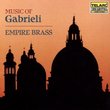| All Artists: Wolfgang Amadeus Mozart, Leonard Bernstein, Vienna Philharmonic Orchestra Title: Mozart: Symphonies Nos. 40 & 41 / Bernstein Members Wishing: 0 Total Copies: 0 Label: Deutsche Grammophon Release Date: 7/24/1990 Genre: Classical Styles: Historical Periods, Classical (c.1770-1830), Symphonies Number of Discs: 1 SwapaCD Credits: 1 UPC: 028943104029 |
Search - Wolfgang Amadeus Mozart, Leonard Bernstein, Vienna Philharmonic Orchestra :: Mozart: Symphonies Nos. 40 & 41 / Bernstein
 | Wolfgang Amadeus Mozart, Leonard Bernstein, Vienna Philharmonic Orchestra Mozart: Symphonies Nos. 40 & 41 / Bernstein Genre: Classical
Leonard Bernstein's self-consciously Romantic approach to Mozart is not to all tastes, but the playing here is so beautiful that it really disarms criticism. In truth, there's nothing particularly mannered about the interp... more » |
Larger Image |
CD DetailsSynopsis
Amazon.com Leonard Bernstein's self-consciously Romantic approach to Mozart is not to all tastes, but the playing here is so beautiful that it really disarms criticism. In truth, there's nothing particularly mannered about the interpretations, and the music moves along in good time. Given the proliferation of Mozart on authentic instruments, this sort of rich, yummy string sound comes as something of a shock, but it's certainly a pleasant one! --David Hurwitz Similar CDs
Similarly Requested CDs
|
CD ReviewsExcellent performance J. Buxton | 11/08/1999 (5 out of 5 stars) "I have the 1984 release of these performances, and I LOVE that disc. The 40th is one of my favorite pieces, and Bernstein's performance is clear and perfectly paced. The 41st is also a great performance. At this price, the disc is a great buy!" Bernstein's towering Jupiter - a milestone. Janos Gardonyi | Toronto, Ontario Canada | 01/08/2004 (5 out of 5 stars) "I firmly believe that Leonard Bernstein found his pinnacle as a conductor with his years with the Vienna Philharmonic. After the angry and disgraceful departure of Karajan, the orchestra welcomed the amicable and enormously talented Bernstein with open arms.They both had a lot to give to each other: VPO its incredible skill,long history of musical tradition, superb virtuosity and sound and Lenny his emotional commitment, interpretive gifts ,( specially in Mahler), plus his talents as a composer. They got along very well. Out of this happy symbiosis this unbelievable recording was born, not the least with the help of Deutsche Gramophone's fine engineers. To cut the story short: This recording is given a "rosette" by Penguin Guide and is rated as one of the essential discs of the works. From the first note of the Jupiter onward we are captured by the authoritative grip of Bernstein and the rich, full sound of the Philharmonic. All instruments, the strings, winds , the bases come out brilliantly. The incredible last movement of the Jupiter is something I have never heard before, the virtuosity of the orchestra and Berstein's sustained control and command is simply astounding. The G-minor symphony which is exactly opposite in mood, rhythm and its forces is also a very good performance, just the right tempo at the beginning and light on its feet in the last movement. Top recommendation. Do not hesitate to buy this disc, sound is remastered digital, but demonstration quality." The best of the late Bernstein J. Buxton | Waltham, MA United States | 02/02/2002 (5 out of 5 stars) "These performances are consistent with other late recordings from Bernstein, in that he tends to become somewhat ponderous. However, unlike some of his latter day efforts, he holds these two symphonies together very well and it seems he really has something special to say in every phrase. To my ears the Jupiter comes off the best, with speeds taken closer to what has become customary over recent years. Bernstein and the VPO make no effort to pretend these are "period" or "historically informed" performances. In fact, one could almost call this "Romantic" Mozart in some spots, but the important point is that none of the charm associated with Mozart is lost at all. The sound from the VPO here displays all the warmth and character we normally hear from this great orchestra. If you need further recommendation for this recording, it is worth noting that the editors of the Penguin Guide, who usually have very little good to say about Bernstein recordings, have given this disc their highest recommendation in their latest edition. I concur."
|

 Track Listings (8) - Disc #1
Track Listings (8) - Disc #1











